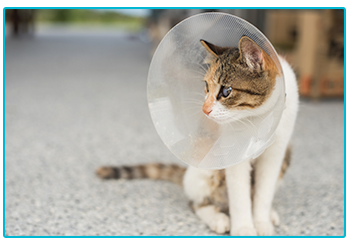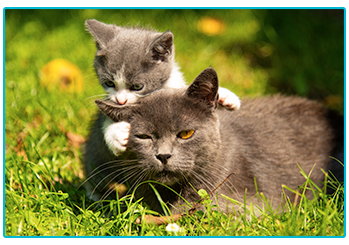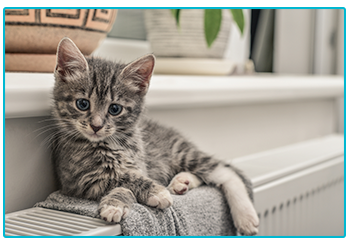Welcoming a kitten into your home is the first step in a really magical adventure! The only downside is that they grow up far too quickly! With some kittens reaching puberty at just four months, it might be a good idea to consider whether to neuter your kitty early on. Here at The Insurance Emporium, we’ve spoken to our pet health expert to find out more about neutering your cat, to help you make the right decision for you and your puss!

Multitudes of moggies
There are several reasons to neuter your cat, the first being that it can help reduce the level of abandoned and unwanted felines in the UK. Cats reproduce quickly and can have several litters a year – that’s a lot of extra kittens! If your cat reproduces, it could potentially leave more moggies without homes living in shelters or on the streets.
Fit felines

Neutering can help prevent the spreading of diseases like Feline Leukaemia Virus and Feline Immunodeficiency Virus. It may also reduce the likelihood of uterine infections and some forms of cancer. On top of this, it can help prevent hormonal-based behavioural issues, such as spraying, wandering and aggression.
When the time’s right
If you’re considering neutering your cat, your vet should be able to recommend the best time to do so. Traditionally, kittens have been neutered from five or six months of age. It’s now more common for the procedure to be carried out from four months, as studies have shown that there aren’t disadvantages associated with neutering at an earlier age.

Males
There’s a difference between male and female neutering! Males are castrated with a short procedure under general anaesthetic. During the operation, two small incisions are made over the testicles, which are then removed. It’s generally advised not to let your kitten outside until they’ve been neutered. Even though male cats usually recover quickly from the operation, it could be best not to let them start to explore the outside world until at least 48 hours following castration.
Females
Neutering in females is referred to as spaying, and involves the removal of both ovaries and the uterus. It’s most commonly carried out as a flank spay, where an incision is made in the left flank in order to access the abdomen. After the procedure, pain relief will be prescribed, and you cat will need a bit of TLC while she recovers, also being kept indoors for several days before she can be introduced to the wider world outside.
The feline mating season typically runs from January to August, so it could be important to ensure your cat is castrated or spayed during springtime! If you’re considering neutering your kitten, or need any further information, the best thing may be to ask your vet for advice.
All content provided on this blog is for informational purposes only. We make no representations as to the accuracy or completeness of any information on this site or found by following any link on this site. We will not be liable for any errors or omissions in this information nor for the availability of this information. We will not be liable for any loss, injury or damage arising from the display or use of this information. This policy is subject to change at any time.


